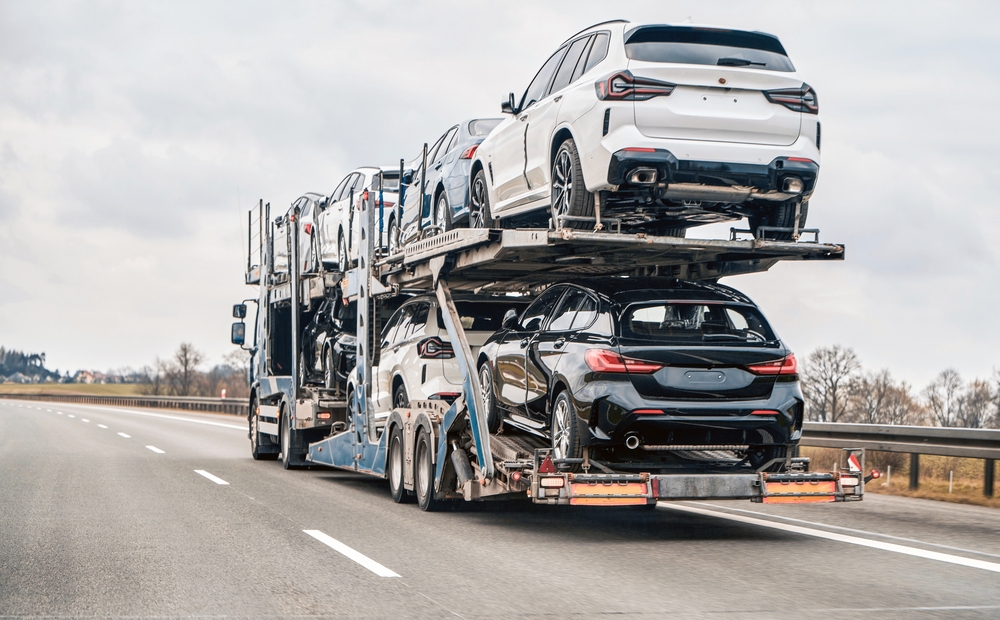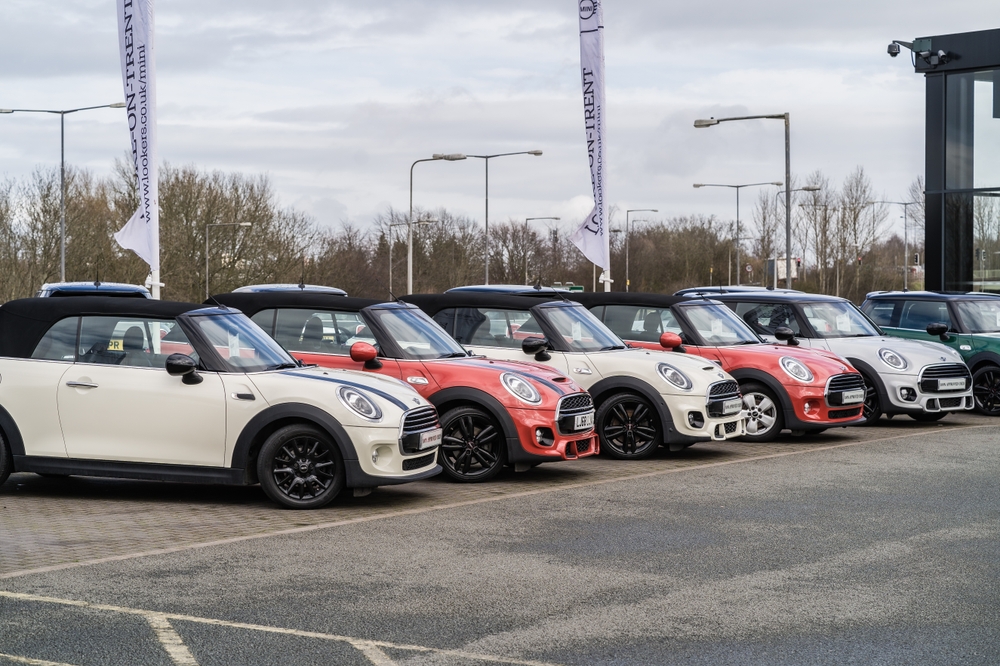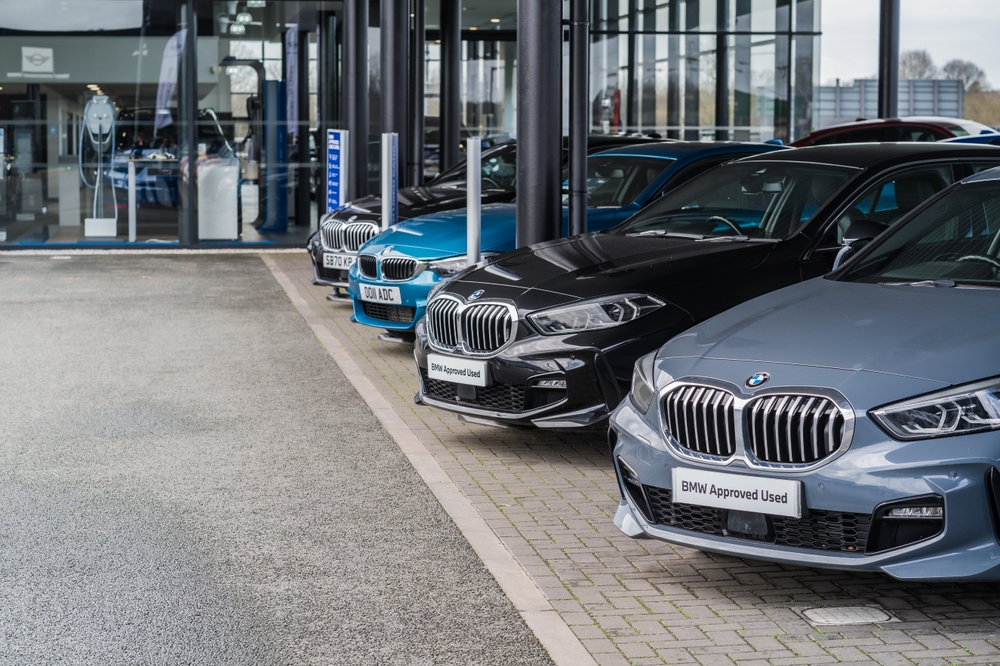We all agonise over our car-buying decisions — whether to go for a petrol, diesel, hybrid car, or electric car. What colour? What size? What type? Which make and model? The list of decisions goes on and on.
Before you get to any of that, though, there’s a more fundamental decision to make — are you going to buy a new car? A used car? Or a nearly new car? It’s arguably the most important of the decisions you will make, and potentially the one that’s going to most define how much you spend and how much residual value you’ll have left at the end of your ownership. Each form of buying has its pros and cons, and we’re going to take you through each one.
Buying a New Car

Pros:
1. You get exactly what you want
Buying a new car, as long as you’re reasonably patient when it comes to delivery times, gives you one overriding advantage — you can pick the precise specification, colour, engine (or battery size, if you’re going electric) and so on. You can, in fact, precisely tailor a new car to your needs and desires. Some car makers claim that so broad are their options lists that technically no two cars which ever leave the factory need be exactly the same.
2. New tech
If you’re buying a new car, then you’re getting a car with — more or less — the latest technology. Now, that doesn’t always pan out, as some current models have been on sale for so long (a decade or even more in some cases) that their ‘new’ technology is actually quite old, but in general a new car will come with the latest software, the latest in engine developments, and so on. It’s especially important if you’re going electric — while there are many compelling reasons for buying a second-hand electric car, the fact is that battery, charging and electric motor technology is evolving quickly, so buying new gets you to the cutting edge.
3. Warranties
Buying new also gives you the longest possible period of peace of mind, as your new car will be covered by its full manufacturer’s warranty. While some car makers still only provide a slightly stingy three-year warranty, others are much more generous. Kia is famed for its seven-year warranty, while Hyundai’s five-year (unlimited mileage) warranty is also generous. MG offers seven years too, while others are now starting to offer four and five years’ worth of cover.
Again, with EVs, newness helps as all new electric cars come with a an eight-year, 160,000km (occasionally higher) warranty on their batteries, so you’re kicking that potential can as far down the road as possible. Equally, some manufacturers — notably Toyota — are offering extended rolling warranties that automatically renew for a year, up to a whopping ten-year limit, if you keep the car serviced at one of their franchised dealerships. Added to all this, of course, you also won’t have to worry about getting an NCT for at least four years.
Cons:
1. Cost
If you’re buying new, then you’re paying new prices, and even with the generous discounts and special offers which are frequently advertised, the fact is that new cars have become very expensive in the past few years.
2. Depreciation
Buying new also means you’re exposed to the biggest chunk of a car’s depreciation curve. While it’s not quite true that a new car is worthless as soon as you drive it off the dealer’s forecourt, the fact is that it’s in the first three years that a car will suffer its harshest deprecation — somewhere between 50-60 per cent of its original value in most cases. While financial products such as PCP (Personal Contract Purchase) can insulate you, to an extent, from that deprecation, never forget that the cost of the depreciation is built into the cost of the finance, so you are essentially paying for it.
3. Waiting times

If you’re happy to just buy a new car from a dealer’s existing stock, then this doesn’t really apply, but if you’re — quite rightly — fussy about colour and spec, and you want to order precisely the car you want, then you might have to wait. In general, it ought not to take more than six weeks or so to order a freshly built car from a major manufacturer, but ever since the disaster that was Covid, and the subsequent shortages in shipping, computer chips, and more, the lead times for getting a new car from the factory to your driveway have stretched and stretched, and three to six months’ wait is not uncommon.
Buying a Used Car

Pros:
1. It’s so much cheaper
Buying used is actually what most of us do — each year, used car purchases and changes of ownership dwarf new car sales, so clearly it makes sense for the majority of us. A ‘con’ of buying new — steep depreciation — turns into a ‘pro’ here, as it means that within three years, most cars will cost around half of what they did new. So, you are basically paying half for the same thing, and the only penalty to you is some wear and tear.
2. No waiting
In general, if you’re buying a used car, you’re buying from stock, so the car you want — the actual one, not some digital representation in an online configurator — is there and ready to rock. In most cases, you’ll take a test drive and actually get to know the car itself a little before you make your final decision. With the speed of modern financial services — whether you’re taking a used car finance package from a dealer, or simply clicking on the banking app on your phone — you can quite easily go and see a used car in the morning and have it home by lunchtime.
3. Approved programmes
Approved used programmes are nothing new — they’ve been around since the 1980s — but they are a godsend to the cautious used car buyer. Most manufacturers and dealers offer such programmes, and they give you massive peace of mind as each car will have been checked for defects and given a clean bill of health before being put on a forecourt. Most will come with at least one year, sometimes more, of warranty. Yes, such cars will be more expensive than if you were buying the same model from a private seller, buy you’re basically paying a small premium for peace of mind.
Cons:
1. History
A car’s history is its most vital aspect. If you’re buying used, you will want to know exactly the car’s mileage and most importantly how, where, and how frequently it has been serviced. Ideally, whether buying privately or from a dealer, you’ll be presented with a stack of receipts and service stamps which speak of a long and careful period of previous ownership, but not everyone’s so careful nor so honest. It’s why used car buying ideally takes some time, and means you need to do your homework, so you know the problem areas to check, and the right questions to ask of any seller. Buying used isn’t the minefield it once was — not least because modern cars are far more robust than their predecessors — but it still needs care and attention. Cartell.ie allows you to check a cars history online.
2. Condition
Quite apart from history, the condition of any used car will almost never be quite as nice as that of a brand new one. Even if a car is in perfect mechanical condition, it will be showing at least some signs of wear and tear in the cabin, on the paintwork, and on the wheels. Such small cosmetic imperfections ought not to present a major issue — they’re part of why used cars are cheaper than new, after all — but they do take a little of the shine off of your new purchase.
3, Warranties, servicing and NCT
If you’re buying used, then the car is ticking closer to needing an NCT — a process which ought to be simple and easy but which in the past few years has been riven with delays and distress — and, inevitably, any used car is going to require at least slightly more intensive maintenance than a brand-new car, as its mechanical parts age and edge closer to needing replacement. And, of course, you’ll have less warranty cover for any of those issues. It’s wise to budget for major servicing and even some component replacements when you’re considering any used car purchase.
Buying a Nearly New Car

Pros:
1. Cost
Buying nearly new is, in theory, the canniest choice of all. You’re getting a car which has minimal mileage — sometimes only delivery mileage, as it has possibly only been used as a demonstrator vehicle by a dealer — yet which, thanks to having a number plate on its nose, is significantly cheaper than a car with no reg. Indeed, many dealers register ‘demo’ models at the end of a month, quarter, or year just to make sure they’re hitting their official sales targets. In doing so, they can earn significant bonuses from the manufacturer to which they’re franchised, so it makes sense to then sell these cars on cheaply and quickly. You can nab yourself an effectively new car at a significant discount.
2. Warranty
A nearly new car will usually only be a month or two old at most by the time you buy it, so the bulk of any original warranty will still be in play for you.
3. Specification
Nearly new cars, or demo models, are often ones with quite high specification, or an unusual colour choice, which may well make them a more desirable car.
Cons:
1. Depreciation
When you buy a nearly new car, not only are you effectively taking on the full brunt of depreciation of a new car, you’re also slightly adding to it, as for a given age your car will now have one extra owner in the logbook. It seems like a small thing, but it does add up come trade-in time.
2. No choice
A nearly new car is essentially a used car, so it will already be in place on the dealer’s forecourt, and so you’ll not be able to specify it to your precise tastes. You’re basically hoping that the dealer in question has similar taste to you and has specified the car as you would like it.
3. Finance
While a car dealer will, of course, offer you a finance package for buying a nearly new car, they often won’t be as attractive a package as a brand-new car. That’s because quite often, the finance packages for a new car are subsidised by marketing funds from the car maker themselves, offering tantalisingly low interest rates — even zero per cent finance — as an incentive to order a brand-new car. A nearly new car usually won’t benefit from such generosity.